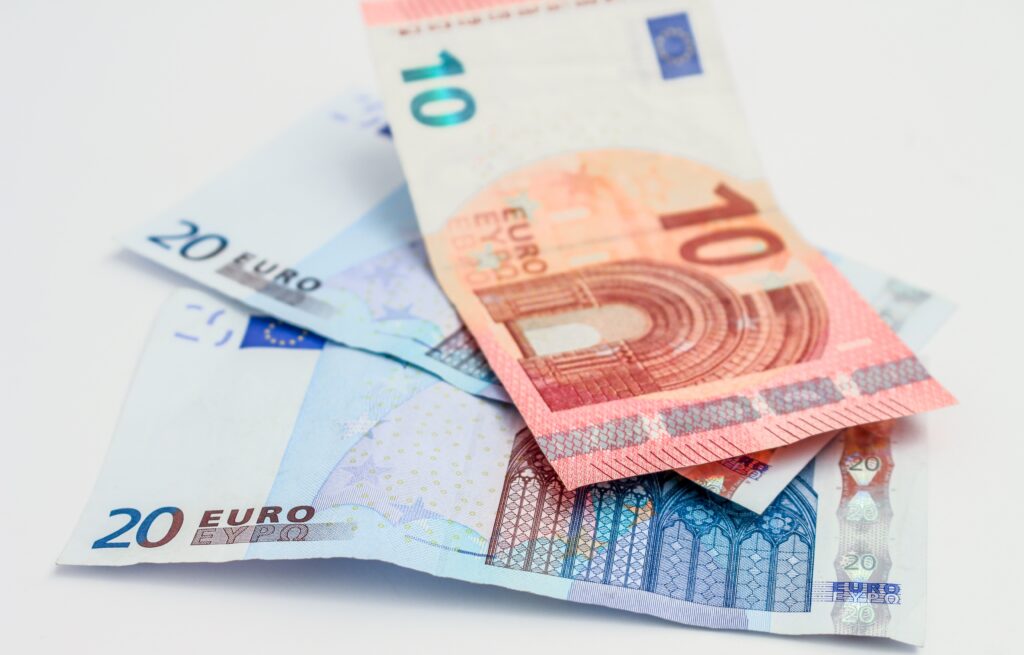How to Inflation Affects Currency – We’ve all heard of inflation, but it may be difficult to understand how it affects the value of currency. Inflation is an economic phenomenon that describes a sustained rise in the average price of goods and services over time. This rise affects not only prices but also has a huge effect on currency and exchange rates. In this article, we will explore how inflation affects currency, why it does so, and what factors can cause it to go up or down. We will also examine strategies to help manage the impact of inflation on currencies and provide some tips for investors looking to capitalize on these changes.
Currency

Currency is a store of value that can be traded for goods and services. Inflation happens when the prices of goods and services go up over time. This affects currency because it takes more currency to buy the same amount of goods and services. For example, if the price of a gallon of milk goes up from $2 to $3, this is inflation. This means that it would take 3 dollars to buy the same gallon of milk that used to cost 2 dollars.

Inflation affects currency in two ways. First, inflation reduces the purchasing power of currency. This means that each unit of currency can buy fewer goods and services over time. Second, inflation erodes the real value of savings. This means that savers lose purchasing power over time as inflation reduces the value of their savings.

To combat these effects, central banks can use monetary policy to stabilize prices and maintain the purchasing power of currency. One way they do this is by setting interest rates. When inflation is low, central banks can lower interest rates to encourage spending and economic growth. When inflation is high, central banks can raise interest rates to reduce spending and slow down economic growth.
WoodProfits New Copy Doubles Conversions
How Does Inflation Affect Currency?
Inflation can have a number of different effects on currency, depending on the circumstances. In general, inflationary pressure tends to depreciate a currency, as higher prices lead to decreased demand for that currency. This can cause problems for countries with high levels of inflation, as their currencies may lose value rapidly, making it difficult to repay debts or import goods. Additionally, inflation may also lead to higher interest rates, which can make it more expensive to borrow money.
There are a few conditions under which inflation can have the opposite effect on currency. One is when a country’s inflation rate is lower than that of its trading partners – in this case, the country’s currency may actually appreciate in value. Additionally, if investors believe that a country’s inflation rate will rise in the future, they may buy up the country’s currency in anticipation of this increase, leading to appreciation.
What is Inflation?
Inflation is the rate at which prices for goods and services rise. It is measured as the annual percentage change in the Consumer Price Index (CPI). The CPI measures prices of a basket of goods and services that a typical urban consumer buys. Inflation can be caused by an increase in the money supply, a decrease in the production of goods and services, or an increase in demand for goods and services.
When inflation is high, each unit of currency buys fewer goods and services. As a result, people’s real incomes fall and they cannot afford to buy as much. This can lead to economic recession.
Inflation can also have some positive effects. For example, it encourages people to save money rather than spend it, because they know that their money will decrease in value over time. It also gives businesses more flexibility in setting prices, as they can increase prices without fear of customers switching to cheaper alternatives.
Overall, inflation is bad for economies because it reduces purchasing power and encourage hoarding of resources.
How Inflation Affects Currency
Inflation affects currency in a few ways. The most direct way is that inflation reduces the purchasing power of a currency. This happens because, as prices rise, each unit of currency buys fewer goods and services. In other words, inflation erodes the real value of money.
In addition, inflation can lead to higher interest rates. When lenders anticipate that prices will rise in the future, they charge higher interest rates on loans today. This makes it more expensive for businesses to borrow money and invest in new projects. As a result, inflation can slow economic growth.
Finally, high inflation can cause a country’s currency to lose value relative to other currencies. If investors believe that a currency will lose value due to inflation, they will sell it and buy another currency that they think will hold its value better. This can lead to sharp declines in the exchange rate, which can make imported goods more expensive and hurt a country’s export-oriented businesses.
The Pros and Cons of Inflation
When it comes to inflation, there are pros and cons to consider. On one hand, inflation can be a good thing for the economy as it encourages spending and can help boost economic growth. On the other hand, inflation can also be a bad thing as it can eating into people’s savings and purchasing power.
Let’s take a closer look at some of the pros and cons of inflation:
Pros of Inflation
1. Encourages Spending
Inflation can actually encourage spending, which is good for the economy. When prices are rising, people are more likely to buy now rather than wait because they know that prices will only go up. This increased demand can help drive up economic growth.
2. Boosts Economic Growth
Inflation can also be a positive driver of economic growth. When prices rise, businesses make more money and this extra revenue can be used to invest in expansion or hire new employees. This leads to even more economic growth and creates a virtuous cycle.
3. Helps Borrowers
For borrowers, inflation can be helpful because it means that their debt will be worth less in real terms over time. In other words, they’ll have an easier time repaying their debt as the value of their money will increase relative to the amount they owe. This is one reason why central banks often target a healthy level of inflation – so that borrowers don’t get too far behind.
Cons of Inflation
What Can You Do to Protect Yourself from Inflation?
One of the best things you can do to protect yourself against inflation is to diversify your investments. This means investing in a variety of assets, including stocks, bonds, and real estate. When one asset class goes up in value, another may go down, but overall you should be able to offset any losses.
Another great way to protect yourself against inflation is to have an emergency fund. This will help you cover unexpected expenses if the cost of living increases suddenly.
Lastly, it’s important to stay informed about inflation and how it’s affecting the economy. This way you can make adjustments to your budget and investment portfolio as needed.
Conclusion
To conclude, inflation is an unavoidable part of any economy and can have a significant impact on the value of its currency. Inflation can be beneficial for some, but it can also cause financial distress for those without enough savings. It’s important to understand how inflation affects currency and take steps to protect yourself from potential losses caused by rising prices. By monitoring government fiscal policies and adjusting your own budget accordingly, you can minimize the effects of inflation on your finances.




